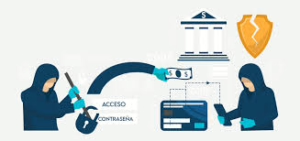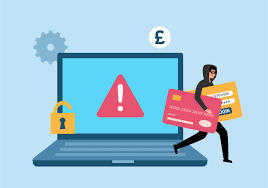In Asia, the pace of digitisation has surged dramatically, especially in Southeast Asia, where over 400 million individuals accessed the internet in 2024. This rapid transformation has unlocked substantial economic opportunities, fostering innovation and growth across various sectors.
However, the swift digital evolution has also turned Asia into a hotspot for cyber fraud. In 2024 alone, individual consumers faced staggering losses estimated at nearly $700 billion due to digital scams. Alarmingly, this figure does not account for the losses experienced by businesses and multinational corporations.

The risks are pervasive; a single misclick on a malicious link or a hasty response to a deceptive text message can lead to significant financial repercussions.
To address this growing threat, it is crucial for all stakeholders involved in the digital ecosystem—financial institutions, governments, online marketplaces, social media platforms, infrastructure providers, and payment services—to unite.
By collaborating on educational initiatives and implementing robust security measures, we can better protect consumers and safeguard their digital identities. Together, we can foster a safer online environment that minimises the risks associated with our increasingly connected world.

The consequences of digital insecurity are profound and far-reaching. The UN Development Programme’s recently published Anti-Scam Handbook highlights the severe emotional, relational, and health impacts that victims endure. Beyond individual suffering, scamming poses a significant threat to sustainable development and inclusive economic progress.
This troubling trend affects personal lives and undermines public trust in authorities and institutions. As a result, communities may become less engaged in and supportive of initiatives aimed at fostering development.
Ironically, the very technological platforms that can promote financial inclusion are also being exploited by cyber criminals. Those who stand to benefit most from these advancements—often the economically disadvantaged—are frequently the most vulnerable to scams.

A united front is essential to combating this issue. Collaborative efforts between governments, tech companies, and civil society can help build resilience against digital fraud and restore faith in online systems.
A United Front on Trust
Imagine a future where the digital landscape is entirely safe, free from the anxieties of online threats. In this ideal scenario, a robust security framework would operate seamlessly, ensuring that users never have to take extra measures to protect themselves. Advanced technologies for security, authentication, and identity protection would work together to intercept scam attempts before they even reach an inbox or social feed.
In this world, newcomers to the digital economy could engage in activities like online banking and sending digital remittances without a hint of worry. With no threats lurking in the system, individuals could focus on what truly matters—growing their businesses and connecting with loved ones.

While achieving this utopia may not be imminent, we can make significant strides toward it. A coordinated effort among all stakeholders—governments, tech companies, financial institutions, and users—could lay the groundwork for a safer digital environment.
By sharing resources, knowledge, and best practices, we can build a comprehensive security ecosystem. Together, we can inch closer to a world where trust is not just an ideal but a reality for everyone online.

What steps should we take to reach our goal?
The responsible exchange of data is essential for advancing our efforts, as it enables individuals with special access to crucial information—like trends in fraudulent activities or unusual behaviours—to significantly enhance security measures. For instance, while some organisations, including banks and law enforcement agencies, possess valuable insights into financial fraud, they may lack the advanced technology needed to analyse and respond to this information promptly. On the other hand, technology firms may have the capability to identify and address threats. Still, they may not have access to comprehensive datasets that could amplify the effectiveness of their tools. Additionally, certain technology providers or digital operators are restricted from sharing a specific account and behavioural data due to licensing agreements and data security regulations, even if such sharing could benefit consumers; current laws do not provide adequate provisions for “legitimate usage” of shared data.

In light of these challenges, the industry must unite to address these concerns and create strategies to combat scams and cybercrime. This need inspired companies to support the formation of the Global Anti-Scam Alliance (GASA) in Singapore, aiming to foster discussions among all relevant stakeholders—including institutions, agencies, platforms, regulators, networks, and operators. By exchanging insights on our methods and sharing successful practices, we can learn from each other’s experiences in various but interconnected contexts, enriching our array of solutions. Furthermore, this dialogue allows members to explore how emerging solutions like privacy-enhancing technologies (PETs), under defined “legitimate usage” criteria, could facilitate secure data sharing among different platforms and operators who are all committed to fighting cybercrime.

Maxthon
In an era where digital communication is in a state of constant flux, venturing into the expansive world of the internet can often seem like an intimidating journey fraught with challenges. The online environment serves not only as an infinite repository of information but also conceals a multitude of potential dangers. Consequently, users need to equip themselves with reliable tools that ensure their safety while navigating this digital terrain. Among the myriad of web browsers available, Maxthon Browser emerges as a prominent choice. This outstanding browser addresses critical issues related to security and privacy, all at no cost to its users.

Maxthon has carved out a significant niche in the competitive landscape of web browsers by prioritising user safety and privacy above all else. With a firm commitment to safeguarding personal data and online activities from various cyber threats, Maxthon employs a suite of cutting-edge strategies designed to protect user information. By utilising advanced encryption technologies, this browser guarantees that sensitive data remains secure and confidential during your online interactions.
What differentiates Maxthon from other browsers is its unwavering focus on bolstering user privacy throughout every browsing experience. It is meticulously crafted with a variety of features aimed at enhancing your digital footprint. Its powerful ad-blocking capabilities, comprehensive anti-tracking solutions, and dedicated private browsing mode work in concert to eliminate intrusive advertisements and prevent tracking scripts that could compromise your online security. As a result, users can explore the internet with newfound confidence. Moreover, the private browsing mode adds an extra layer of protection, enabling users to surf the web without leaving behind any digital traces on their devices.
Additionally, Maxthon Browser is fully compatible with Windows 11, allowing users of this latest operating system to benefit from its features.
